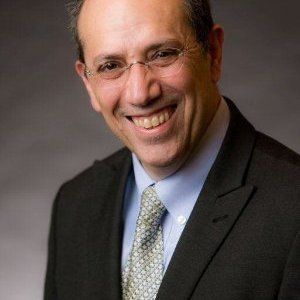Having spent the majority of his career in academia, it is unsurprising that Juan Ochoa has brought scientific rigour and analysis to his role as Chief Medical Officer at Nestlé Health Science. He focuses on commercialising concepts that originate in the laboratory by developing value propositions based on clinical and real-world evidence.
The former trauma surgeon tells eyeforpharma that the value of a company and the solutions that they bring are ultimately determined by their capacity to solve unmet needs for the end consumer. According to Ochoa, there are several targets in healthcare – the patient, the physician, and the payer. “The patient is always at the centre,” he says. “As a company, you need to keep that focus to succeed.”
Value is the word on everyone’s lips, but Ochoa is dubious when it comes to its penetration into health care practices. “It is essential that companies embrace value; they have to talk the talk and walk the walk.”
Ochoa has devised a template for an “evidence development process”, which he says is the scientific way to succeed in creating a high value product that provides a solution to an unmet need. The business case must consider three value perspectives – the foundational value, the clinical value, and the health care value (in that particular order). The first two are essential, he notes; without these, the real-world evidence that demonstrates health care value cannot be created.
“The first question is always “what is the unmet need”, and the second has to be, “can we as a business solve that unmet need? In the process of creating a solution that is valuable, the first step is identifying whether there is a scientific basis, or what we call foundational value. For example, in the case of nutrition, why would a nutrient potentially be a solution?”
Ochoa references the recently published results of the DiRECT trial, The Lancet publication of which he praises as a seminal article. The study, which examined routine primary care-led weight management for remission of type 2 diabetes, and showed and 86 per cent success rate among patients who followed the strict diet and received counselling, losing 15 kilos of weight, is a prime example of the demonstration of efficacy in a good quality clinical trial, he says.
“To reach to these results, researchers first had to understand the scientific mechanisms of how a diet along with a behavioural program could potentially help cure or manage diabetes, followed by the execution of a well-designed clinical trial. The result was clinical evidence of at least a remission from illness – this is called efficacy. Now the next challenge is: “can you do this in the real world?”
Yet, this wasn’t always the way things were done. In the past, products having demonstrated efficacy in clinical trials, were released onto market without any knowledge of the benefit the product would carry in the real world, Ochoa says.
“We have to think about public health benefit – not just for the patient, but for the healthcare system. That benefit in the real world is called “effectiveness” and is the ultimate determinant of value. Some examples of value may be that of saving lives, or helping people return to work earlier, or it may be a value of reducing costs.”
The role of medical affairs is crucial here, he adds. “It helps oversee this process, it helps identify unmet needs, and it helps understand real world evidence. It really has that oversight of the entire evidence development process.”
Ochoa employs another example to illustrate how this has been implemented at Nestlé Health Science. He is able to speak from personal experience about the risk of infection post-surgery – an issue that affects patients, physicians, and payers. He explains that in colorectal surgery, up to 20 per cent of patients can get infected and a significant number of patients end up being readmitted after surgery, “and even though we lose fewer patients now, there is still a mortality associated with this.” In addition, these patients cost the healthcare system can sometimes double the original cost of care –“Independent of who my customer is, the goal is to reduce the risk of infection, help the clinician be successful, and in the case of third party payers, reduce the cost of care,” states Ochoa.
Many years ago, it was determined that one of the foundational determinants for this problem was the failure of the immune system. “Through serendipitous observations, researchers realised the replacement of a single amino acid along with supplementation of fish oil and nucleotides seemed to make the immune system work better,” explained Ochoa.
Diets were devised to this end. Prospective clinical trials utilizing these diets ideally before and after surgery, demonstrated a 40 per cent decrease in the risk of infection after surgery (Drover et. Al. Journal of the American College of Surgeons -2011). While this was proof of efficacy, the next question was whether arginine based immunonutrition, as this field is called, would work in the real world.
With the support of Nestlé Health Science, a group of surgeons known as the Surgical Care and Outcomes Assessment Program (SCOAP) group established a programme called “Strong for Surgery” and carried out a real-world intervention. Ochoa was a contributing author on the resulting article. “What they demonstrated was that even in the real world you still observed a 24 per cent decrease in the risk of infection following surgery. And the cool thing that we found that the risk of re-admissions at six months were dramatically decreased.” This was in addition to economically significant cost savings – up to $5,000 per patient.”
According to Ochoa, this shows the value of the product is not what it cost to make it, but rather the healthcare benefit that this product brings. “The demonstration of real world value allows the product to be commercially viable and to be good at an individual level and to society. This evidence based development of value is what is giving companies the edge, becoming a guide of how they should direct their efforts at creating solutions.”
Juan Ochoa will be sharing his wisdom at the eyeforpharma Medical Affairs USA event in April.
Related Content: Medical Meets MachineRedefining Medical Need Navigating The New Landscape Digging For Gold  Primary Event: Medical Affairs USA 2018Précis: Nestlé Health Science's Chief Medical Officer presents the pluses of applying a more scientific approach to medicalPremium`: Freemium`: Channels: Patients and MedicalTags: medical affairsChannelimage:
Primary Event: Medical Affairs USA 2018Précis: Nestlé Health Science's Chief Medical Officer presents the pluses of applying a more scientific approach to medicalPremium`: Freemium`: Channels: Patients and MedicalTags: medical affairsChannelimage:  Original Article
Original Article


